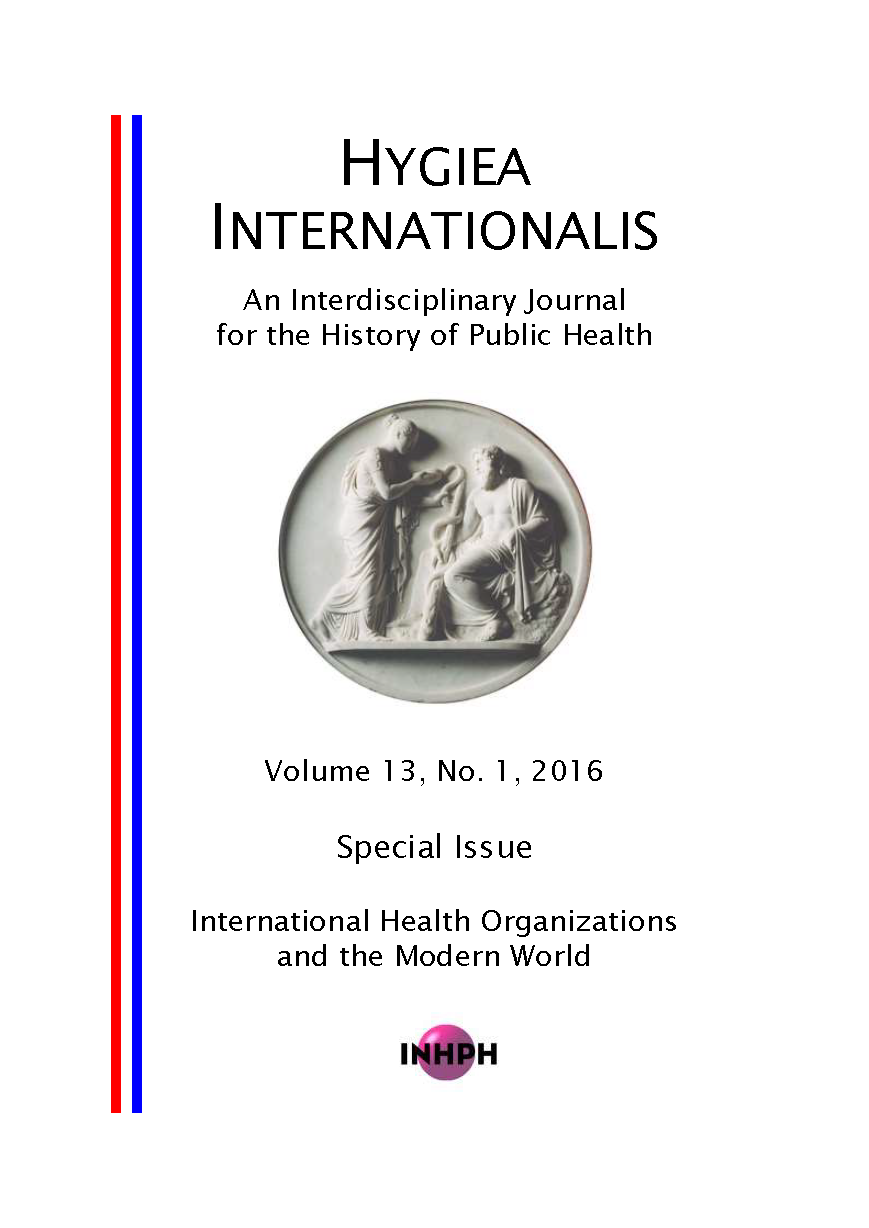Settling the Matter on Indian Soil:
Frictions between WHO and UNICEF over Vaccination against Tuberculosis, 1947-51
DOI:
https://doi.org/10.3384/hygiea.1403-8668.1613181Keywords:
Tuberculosis, Scandinavia, India, post-colonial, Bacillus Calmette–Guérin (BCG) vaccination, UNICEF, WHOAbstract
It has been common to represent relations between the WHO and UNICEF as cooperative and collaborative in the early decades of the history of both. By focusing on tuberculosis programmes in South Asia this article argues that this was not always the case. The International Tuberculosis Campaign (ITC) was a Scandinavian venture that pioneered Bacillus Calmette-Guérin (BCG) vaccination in South Asia immediately after the Second World War. Both UNICEF and the WHO involved themselves with ITC activities and the impact of this is traced in India. By the 1950s it appears that the UNICEF focus on BCG vaccination had won out over the WHO preference for a broader-based approach to tuberculosis and this article examines the reasons why.Downloads
Published
2016-12-07
How to Cite
Brimnes, N. (2016). Settling the Matter on Indian Soil: : Frictions between WHO and UNICEF over Vaccination against Tuberculosis, 1947-51. Hygiea Internationalis: An Interdisciplinary Journal for the History of Public Health, 13(1), 81–93. https://doi.org/10.3384/hygiea.1403-8668.1613181
Issue
Section
Articles
License
Copyright (c) 2016 the Author(s)

This work is licensed under a Creative Commons Attribution-NonCommercial 4.0 International License.






